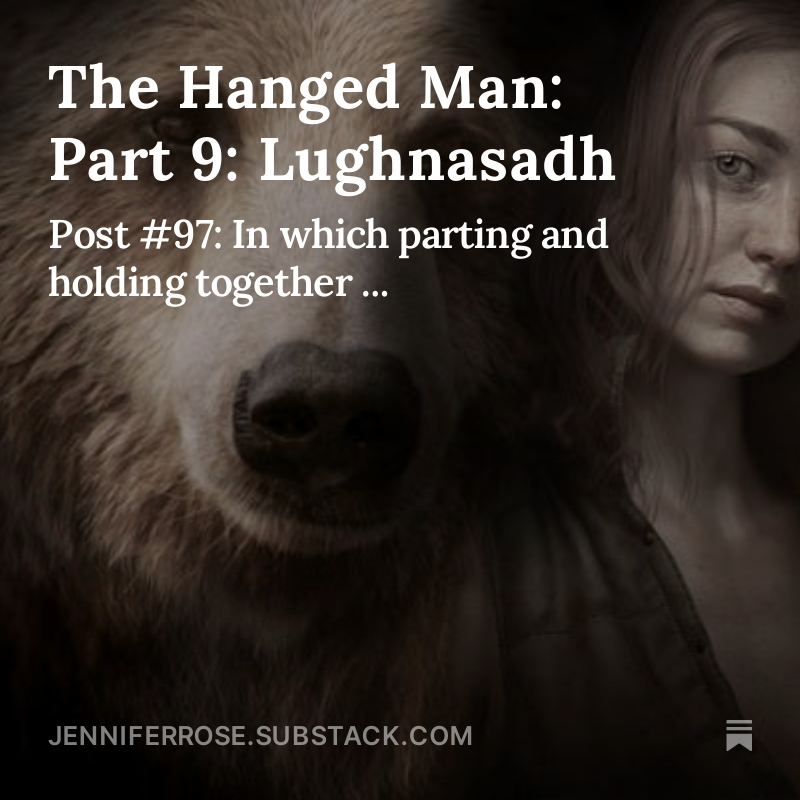by Jenny Rose | Oct 12, 2017 | A Flourishing Woman, The Journey

Photo by Autumn Mott on Unsplash
I love autumn, and autumn in New England is particularly poignantly beautiful. The leaves, oh the leaves! It’s as though the trees release their passion in one final gasp of ecstasy before their long sleep. The colors stun the senses with their beauty; it’s almost too much to absorb. Yet the trees’ splendor is fleeting. Inexorably, the leaves fall like golden tears, like blazing sparks, and as they fall the greatest power of all is revealed: The true shape of things.
The green and fiery sea of the forest and fields recedes. Lichen-covered rocks bare themselves. Trees stand or lean in bony beauty, gnarled and hollow, smooth and upright, each species clad in its own color and texture, but now the colors are russet and ivory, shades of brown and grey touched with black. Thorns and stems become semi-transparent cover for winter-colored birds and animals.
The bare forest is everything it is and nothing it is not.
I, too, am becoming reduced to my essential self. Confusion, guilt and shame are loosening their hold on me and drifting away, and I make a resting place for them in my writing. I look back in my memory and, for the first time, begin to see the true shape of things. All the words that weighed me down and kept me small, all the gaslighting and controlling, all the lies and distortions, are responding to some miraculous internal seasonal shift and slant of light. I am bursting into triumphant understanding, and then letting go, letting all that does not serve me fall away. My true shape emerges, and it’s strong and clear-seeing and wise. It always was.
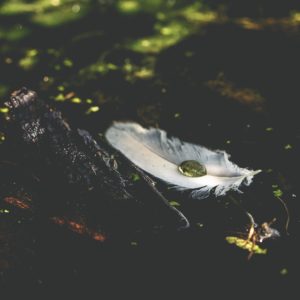
Photo by Erik Stine on Unsplash
Now I begin to see the true shape of things. Now begins a season without pretense, unencumbered by expectations. Now the lineaments of my feelings lie bare. The landscape of my life becomes stark and uncomplicated, a walk through winter woods where a feather is a feather, a quill a quill and a swatch of fur on a thorn exactly what it is, not more, not less, not something else entirely. I reclaim the dignity of my own perception, intuition and experience.
It does not surprise me that traditionally this is the time of year when the veil between the worlds thins, ghosts walk, legends come to life, ancestors are honored, and we acknowledge that which haunts us. I do not fear my ghosts. Indeed, they’re old friends and companions. My bogeymen were flesh and blood concealed beneath dazzling costumes of false power, fearful only as long as their true shape was hidden from me.
Some fear the fading light, endings and truth. Some prefer the riot of distraction and confusion. Some refuse to see or know the true shape of things. My own courage is not strengthened by distraction, no matter how beautiful or seductive. My courage is a thing of unadorned simplicity, spare and clean as bone.
The leaves fall, ravishing, rapturous. At last, the true shape of things emerges from the blaze, pure and indestructible, and I embrace it like a lover.

Photo by Vanessa von Wieding on Unsplash
All content on this site ©2017
Jennifer Rose
except where otherwise noted
by Jenny Rose | Apr 27, 2024 | A Flourishing Woman, Mind
A few weeks ago I explored self-trust. Until I wrote that piece, I had not realized how deeply I distrusted myself. (As a writer, I find nothing clarifies my thinking better than written inquiry. The process uncovers so many unconscious and hidden things.)
In that post I speculated about choosing to trust myself, as trust is a belief, and beliefs can and do change. I thought it would be interesting to consciously trust myself for a few days and see what happened.
What has happened is a profound change in my interior life and my mental health. What happened is the realization that learning to self-love, while a healing and valuable practice, was not, after all, what I most needed.
This still seems strange to me. We are certainly taught love is the greatest feeling, the closest to the Divine we can come, the best we can be as human beings. We define love endlessly, discuss it, long for it, search for it, tell ourselves it will fix everything if only we can find someone to love, if only someone will love us completely, unconditionally, forever and ever (or at least until death do us part), amen.
But my experience has taught me love is changeable and elusive. All kinds of abuse masquerades as love. We don’t all mean the same thing when we express love.
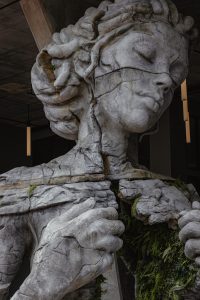
By Marianna Smiley on Unsplash
Perhaps most heartbreaking of all, we don’t always value the love that comes our way, and we may learn to distrust it. Every master manipulator in the world recognizes the power of our need for love. Once that need is used against us, we are on our guard against love.
Love hurts. Love can endure, but a withered, starving love living on memories and perhaps based on delusions or the simple call of blood is a desolate ghost haunting our hearts. Love can scar us so deeply we’re never the same.
The daily practice of loving oneself is less complicated than loving another. At the very least, I know what I mean when I say it to myself, and my self understands my demonstration of it. Nothing is lost in translation. I can trust my own love.
And there’s that word – ‘trust’. Trust and love: does one require the other, or are they separate? One is a feeling (love), and one is a belief (trust). Both can be manipulated. In terms of our love and trust of ourselves, both are highly subject to interruption or even amputation by those who influence us, especially as children. If we are repeatedly given to understand we are not lovable or not to be trusted, we internalize those beliefs before we even have language. We don’t learn to love and trust ourselves.
Internalized beliefs are enormously powerful right up until we examine them closely, at which point they can vanish like a wisp of smoke. Once we’ve seen them as false, we become conscious of their pervasive influence and our internal structure changes in astounding ways.
This is what has happened to me.
When I set out to live a few days consciously trusting myself, I realized within an hour my obsessive and unending loop of review and preview. Just like a fish in water, I have no memory of ever living any other way, so I never noticed it before. Well, that’s not true. I noticed it, I just called it anxiety. As I’ve always been anxious and expected I always would be, I didn’t think further about it.
In an example from my childhood, when I was very young, kindergarten age, my mother had a lot of pain and was quite unhappy. I had a younger brother and we had cats and dogs. In an effort to take care of my mother, I learned how to do things like make beds, sort laundry, set up the coffee maker, make orange juice in the blender (frozen concentrate), take care of the animals, tie my own shoes and teach my brother to tie his, etc.
I vividly remember lying in my bed, my brother across the room in his bed, reviewing everything I’d done that day. I had trouble with hospital corners on the beds because I wasn’t strong enough to tuck the sheets in properly under the mattress. Mom had to bend over and do them again, so I failed to help and caused her pain. I didn’t turn a sock right side out when I sorted the laundry. I could tie my own shoes, but I was baffled trying to teach my brother to tie his while facing him. And so forth and so on.
Review: I hadn’t done it right. I hadn’t helped. I hadn’t been perfect. I hadn’t made Mom happy. I had to do better. Preview: Next time I would look at every piece of laundry, be sure nothing was inside out. Next time I would remember how to sort it properly so Mom wouldn’t have to bend down and do it herself. Next time I would figure out a way to get the hospital corners right, but I wouldn’t have to face that again for a week or so. Maybe I’d be stronger or bigger? If I got behind my brother and tied his shoes from that angle, could I do it? I had to do it! It hurt Mom to bend down.
This habit, this ongoing internal review and preview, has never stopped. Whatever I’ve just done, I review it. Whatever I’m about to do, I preview it. Racing thoughts. Circular thinking. Problems with sleep and chronic tension. Adrenal overload and exhaustion. The need to distract, to make it stop. The inability to have a quiet mind. Most of us are familiar with the symptoms of anxiety.
I believe my anxiety has been rooted in my self-distrust. When I decided to behave as though I do trust myself, I became conscious of my lifelong review and preview habit, as much a part of me as my blue eyes. At the same time, I discovered the solution. The minute I catch myself either reviewing or previewing, and it’s many, many times a day, I say, “I trust you,” to myself.
And I stop. I don’t need to review. I don’t need to preview. I did the best I could, because I always do that. I’ll do the best I can, because I always do that.
“I trust you.”
I’ve also realized, after long experience of sorting through my own psyche, this self-distrust is not mine. It doesn’t smell like me. It’s not home grown. It came from someone outside me, like so many of the unmanaged, unacknowledged emotions and beliefs I’ve carried, recognized as not mine, and let go.

By Danijel Durkovic on Unsplash
I discovered, as I wrote that post on trust, I do trust myself. I’ve always had cognitive dissonance around trust. Those around me didn’t trust me, yet I trusted myself. I trust my intuition. I trust my empathy and sensitivity, I trust my intention to do the right thing, I trust my flexibility and my ability to learn. I trust my ability to love. I trust my ability to think critically and recognize the truth, no matter how unwelcome. When I assure myself of my trust, it’s not a lie. It’s a truth buried for years under trauma.
I suspect many of us review and preview, consciously or not. It’s wholly ineffective in terms of healthy functioning. It makes us less flexible and resilient. It tires us out, creates long-term chronic stress, and is a constant no-confidence vote we give ourselves. It doesn’t make us more perfect; in fact, it does the opposite because it encourages us to be brittle and fearful. It doesn’t stop us from making mistakes. It turns us away from presence and authentic expression and towards behaving like automatons with a rigid script.
It gives us anxiety.
Most of all, reviewing and previewing doesn’t keep us safe. It doesn’t help us feel loved.
The compulsive habit of reviewing and previewing took up an extraordinary amount of space in my mind and required enormous quantities of energy and attention. Without it, I feel an internal spaciousness I’ve never had before. I read more. I write more. I can rest and relax. I’m far less driven, far more comfortable in my own skin. I’m more present and mindful in the moment, and with my feelings and my body.
I’m far less anxious.
Learning to love myself has been a gift. Reclaiming trust in myself has changed my life.
Questions:
- Do you love yourself? If not, why?
- Do you trust yourself? If not, why?
- If you could only have one, would you prefer others to trust you or love you?
- What do you think is more important socially: love or trust? Why?
Leave a comment below!
To read my fiction, serially published free every week, go here: 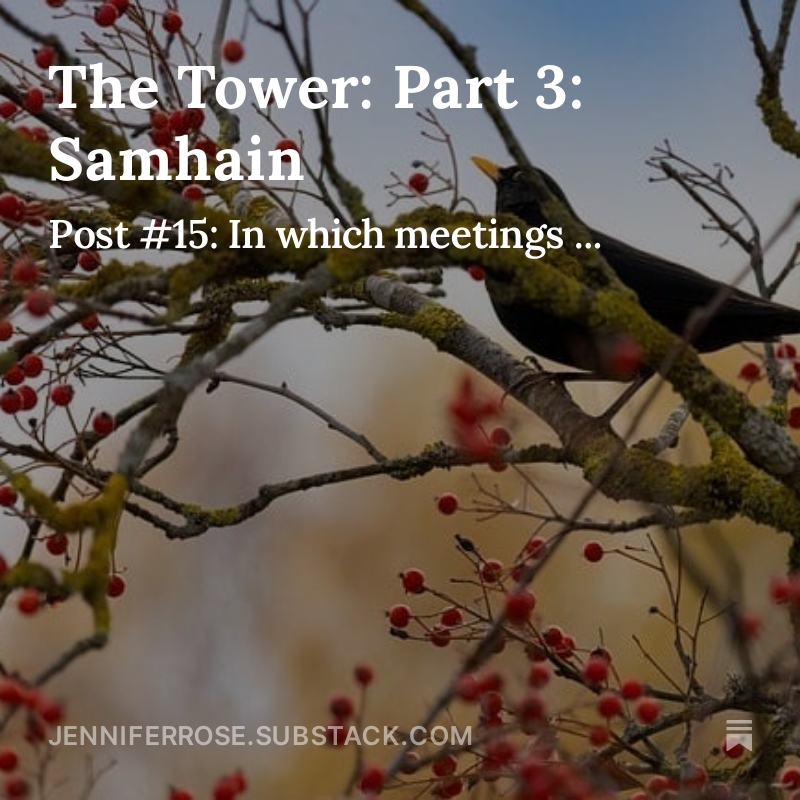
by Jenny Rose | Mar 2, 2024 | A Flourishing Woman, Mind
A couple of weeks ago a discussion I was involved in touched fleetingly upon the idea of an internal locked room, where we keep our most private thoughts and feelings. I’ve been thinking about the concept ever since, fascinated by the metaphor.

Photo by John Salvino on Unsplash
What’s in my locked room?
I don’t know. I don’t want to know, and I don’t want anyone else to know. That’s why I lock that stuff up!
But what’s in there?
I can’t let it go.
As a storyteller, I immediately recognize this common theme running through oral stories and folklore from all traditions. Something is locked or hidden. It’s forbidden to look. Lovers make a bargain. Authority demands obedience. The consequences of looking are not fully revealed, but it’s forbidden to look!
Someone always looks. Remember Pandora? Consequences ensue.
I’ve never really thought about an internal locked room until now; never considered how big it might be or what’s behind the door. I haven’t realized whatever my room contains is locked away from me as well as everyone else. All the memories I don’t want to remember. The hurts, the fears, the terrible thoughts, my unforgiveable deeds. The things about myself I can’t love.
Is it unhealthy to have a locked room? I assume everyone has one, but maybe not. I’m not uncomfortable about the presence of mine, but I question the wisdom of locking myself out. The road to self-love is long and arduous; can I practice it if I still don’t want to face (and accept or forgive) parts of who I am? That doesn’t feel like self-love.
Is a locked room adaptive or maladaptive? Could it be both? Does size matter? (You know what I mean. The size of the room!) Maybe the size is irrelevant and it’s the contents that count. 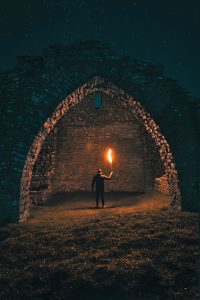
Why do we put things in our locked room? Why did I put things in mine?
Well. I’m ashamed. Or I’m afraid of emotional pain, conflict, or of hurting others. Maybe it’s something I’m not ready to forgive myself or others for. Maybe I lock it away to fester?
Ugh.
So is the locked room about keeping me safe or others safe?
Both, I think. Others safe from me and me safe from others. But it’s also a holding place where I keep things I don’t want to deal with.
I’ve read Radical Honesty by Brad Blanton. It gave me the horrors. I’m unable to see radical honesty as a pathway to healthy cooperation and collaboration. For me, privacy is a need, not only in an external sense of spending time in solitude, but also in the internal sense. This is unsurprising from a highly sensitive, empathic person who has experienced emotional trauma and abuse. I need my privacy and I’m intensely protective of the privacy of others.
I think a locked room is an essential piece of healthy functioning.
However, we as a species have a dreadful propensity for carrying things too far.
Not me, of course. I never do that.
How do we decide what’s appropriate to share and what’s not? Working with patients and patrons at the pool facility where I’m employed, I constantly feel battered with oversharing. People, especially seniors, are lonely. They have a lifetime of memories and experience. They have health issues that frighten them. They need to talk. My team and I do our best to be compassionate listeners.
But sometimes I wish I could forget what I’ve heard. Secrets are safe with me, but the feelings that come with them are burdensome; as an empath I’ve struggled all my life to avoid taking on the emotions of others. Mostly not very successfully.
Does everyone need some privacy? Is it a continuum? Do I need too much privacy? How much is too much? Who gets to decide? Is there such a thing as being too open, too un-private, if you will? Or does everyone have a locked room, even if it’s only the size of a mousehole?
Rooms. What happens in private rooms? Clutter. Dust bunnies. Cat hair. Hoarding. Loneliness. Despair. Death. Birth. Love. Sex. Creativity. Cooking. Self-care. Self-harm. Sleeping. Using the toilet. Distraction. Playing out addictions. Violence. Weeping. Exercising. Entertainment. The human activities of daily living we all engage in.
A locked room could be a dark and bitter dungeon or a light and airy penthouse. What kind of a locked room do I have? What kind do I want? 
I hate clutter. Is my locked room cluttered? Surely not! Well, maybe. There’s 60 years’ worth of stuff in there! It’s spring. I kind of want to unlock it, open a window, air the place out. Maybe tidy up a little? Let go of some stuff? Sort? Organize? Would that be so terrible, so impossibly painful?
I have a sneaking suspicion some of what’s in my locked room is not even mine, but things given to me. Or imposed on me. I inherited toxic beliefs, experiences, and feelings from generations before me and believed it was my job to carry and preserve them.
Why am I storing what doesn’t belong to me?
Perhaps my locked room contains parts of myself I tried to get rid of and now need. Treasure, if you will. Maybe exploring it could be in part an act of reclamation.
Maybe if I open the door a tower of horror will fall on top of me and I’ll be smothered. Maybe if I don’t open the door green slime will ooze out from under it.
What’s in there?
I have some answers. My relationship with a cat named Ranger is in there, and no, I don’t want to talk about it. Every room needs a cat, in any case.
Health struggles (not serious) I’m largely unwilling to share are in there, although I have recently cracked the door and let some of them out. Carefully. Nothing bad happened.
My relationship with my children, one in particular, is in there. Now and then I’ve let a small amount of that out, too, but not often, not much, and only to my most trusted female friend.
My locked room is filled with passion. Passionate feelings of all kinds I’ve been hiding and repressing all my life. They’re strong and intense and I’ve been brutally taught they’re ugly, frightening, and obscene.
This has lately become a problem because rage is finding its way out of my locked room with disturbing results. Having escaped the room, it has no intention of being stuffed back in there and restrained. It’s a daily challenge at home, at work, and in the most unexpected contexts. It has stories to tell and I’m listening, reluctantly, but it frightens me and I’m ashamed of it. I thought I would always be able to keep it locked up and controlled. It appears I was wrong.
What else? I don’t know. These are the only specifics I can come up with. I’ll probably become conscious of more, now that I’m thinking about it.
I won’t fling the door of my locked room open and do a thorough cleanout because it’s the wellspring of my creativity, any small wisdom I’ve gained, and my empathy. As a gardener and a writer, I believe in compost. Something wild and primal in me, nurtured by Baba Yaga, loves the stink, the rot, the death, the blood, because these are the cradle of life. Nature does not waste. It’s all recycled. My experience of pain and passion empowers my writing, power I would not lessen in spite of its high price. Such power is born and rooted in fecund darkness, in muck mixed with blood and tears, in the edge of chaos, not in a bright, shining, passionless, well-aired room.
Yet I fear the passion the most. It feels like too much to release or keep contained. I fear its power to tear me apart, which is why I locked it away in the first place, and I fear its potential to hurt others. Much of it fuels my writing. I bleed some off with exercise, especially dance. But those are safety valves rather than open doors. Part of me wants to set my passion free. But for now most of it will stay in my locked room.
Questions:
- Do you have an internal locked room? How do you feel about it?
- Do you believe emotional privacy is essential, or do you think it’s unhealthy? Is it a need on a continuum?
- Are you familiar with the concept of radical honesty? What do you think about it?
Leave a comment below!
To read my fiction, serially published free every week, go here: 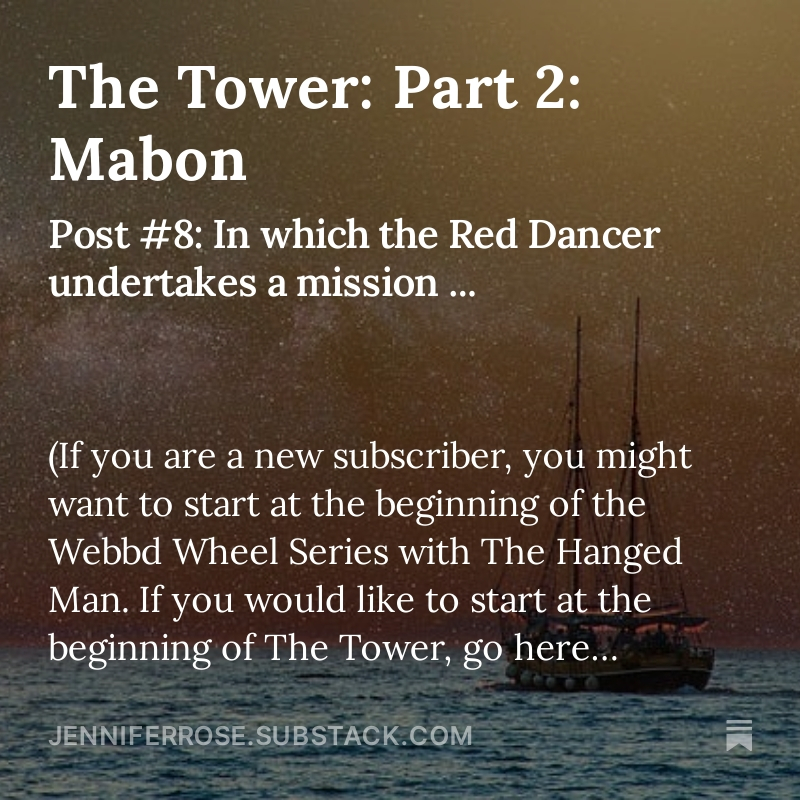
by Jenny Rose | Jan 20, 2024 | Emotional Intelligence, Feelings
(Due to a technical glitch, most of you were not notified when I last posted. You can follow this link to read the post if you missed it. I think the problem is fixed now!)
As so often happens, several threads came together to weave this post. The first was a suggestion from Seth Godin to follow our wandering mind, as that’s where our heart might be.
On first read, I smiled and thought “of course,” because following my imagination is one of my greatest pleasures.
As I considered it over a period of days, however, noting where my mind wanders, I discovered something.

Photo by John Salvino on Unsplash
I happily follow my wandering mind as long as I feel undisturbed about where it goes. The minute I start to get uncomfortable, however, I shackle it. Brutally. This might be with distraction, compulsive productivity, or starting to speed. A lot of people eat, overexercise, or get trapped in substance abuse. Let us count the ways!
I have rules about where my mind is allowed to go. I enforce my rules without mercy, in collaboration with draconian internal voices. My rigidity is not so much about my thoughts wandering as it is the feelings I have about my thoughts. This is emotional intelligence 101, and I’ve written about it before.
Thoughts and feelings are not the same thing.
In essence, then, I’m putting a lid on my feelings. Again. Still.
Sigh.
It doesn’t work. It never works, and I know this, but I do it anyway.
I do it for the same reason we all attempt to avoid painful feelings. They’re painful! Avoidance is easier than allowing ourselves to feel them, find healthy ways to express them, and let them go.
How many thoughts do we have in a day? I suspect most of us chew on the same preoccupations day after day, whether our thoughts engender feelings of rage, grief, fear, or shame, or a combination du jour. Uncomfortable territory. Also highly addictive territory. I’m chagrined to admit my own attraction to struggle. It’s so easy! Which is ridiculous, because it makes everything much, much harder than it needs to be, physically, emotionally, and generally.
Maybe what I mean is it’s so familiar!
As humans, we have an irresistible compulsion to notice, emphasize, and dwell upon the negative rather than the positive. That’s why so many people find relief in a gratitude practice, including me. Switching from a negative to positive focus requires mindfulness and mental effort, but the relief from anxiety and stress is immediate.
I should do it more often. Like ten times a day.
Understand, I’m not suggesting we avoid our feelings. I’m suggesting we take control of our thoughts, especially the negative kind. Feelings rise and fall inescapably. They’re biochemical messages from our physical bodies. We were made to have feelings. What we do with them, of course, is well within our control. Thoughts, however, are ours to steer.
Feelings, though arising naturally, are contagious and easily manipulated. That’s why advertising and social pressure work so well. Our feelings can be deliberately manufactured to serve those who would control our money, our votes, and our humanity.
On the other hand, this means we can to some degree manipulate our own feelings with our thoughts.
I came across an article by writer and speaker Rob Henderson, who I follow on Substack. He wrote a piece listing lessons he’s learned during a challenging life, beginning in the foster care system. One of the lessons is “you are what you do.” Not what you feel, but what you do.
I thought immediately of my writing community on Substack, where each of us struggles with what it means to be a writer. I don’t speak for anyone else, but I’ve called myself a writer ever since I began writing. Writers write. That’s what I do.
I like to keep things simple (even though I often don’t, which is a perfect example of what I say versus what I do!)
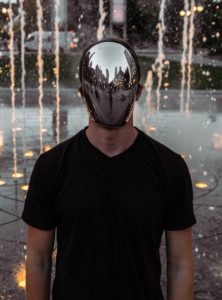
Photo by Alex Iby on Unsplash
We are what we do. I agree. We are not entirely defined by what we think and feel. I’ve known that ever since I went through emotional intelligence training. We’re also not defined by who we say we are, or who others say we are. We are not our highly polished and desperately maintained identity. Our true thoughts and feelings, the private stuff no one else can see or hear, steer our choices and actions, and those are what truly reveal our most authentic selves.
It follows if we want to change, we must do things differently. As many others have discovered long before me, true change comes from the inside out. If we manage our thoughts and feelings in healthy ways, our actions change. That’s why short-term strategies like diets often fail. A temporary diet does not address our broken relationship with food, a much harder proposition to tackle.
We seem to be on a giant rack, ever widening, between who we think we should be or must be and who we really are. The struggle and tension threaten to tear us apart, yet we cling to our rack, desperately holding ourselves together, too afraid to relax into who we really are and make peace with our true selves.
In a constant state of tension, we don’t let our minds wander. We can’t afford to. We don’t have access to the peace and quiet or even boredom a wandering mind requires. Our technology has erased the fertile ground of boredom, particularly for our children. We feed our hearts a diet of distraction, manufactured drama, busyness and productivity; a hunger for more, bigger, better, newer things, and expect it to be satisfied. We ignore or numb our feelings, or turn them into destruction of ourselves and others.
I often think of this Chinese proverb:
Tension is who you think you should be. Relaxation is who you are.
Toxic positivity is not an effective coping mechanism. Nor is a state of deep depression and withdrawal, as in addiction. I want to find a path between the two.
Perhaps my wandering mind knows the path and will point the way if I allow it to. Perhaps our minds know exactly where our hearts are but we’re too afraid to know.
Questions:
- When your mind wanders, where does it go?
- How do you feel about where your mind wanders?
- How do you think an inability to focus (distractibility) might in some cases be connected to a refusal to follow the guidance of mind and heart?
Leave a comment below!
To read my fiction, serially published free every week, go here: 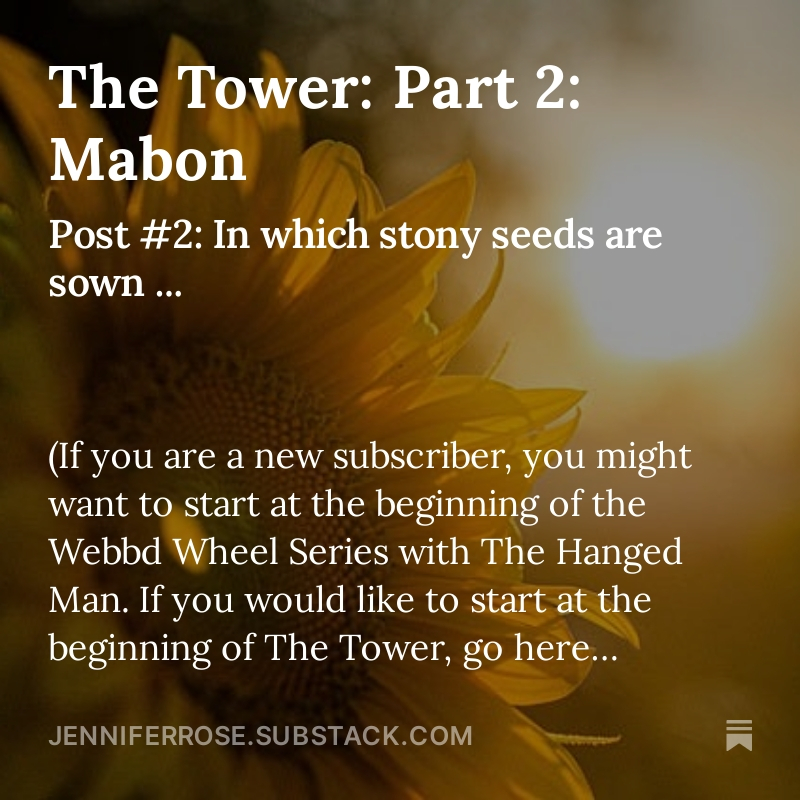
by Jenny Rose | Dec 9, 2023 | A Flourishing Woman, Creativity
Turning and turning in the widening gyre
The falcon cannot hear the falconer;
Things fall apart; the centre cannot hold.
–From “The Second Coming” by W.B. Yeats
The line “the centre cannot hold,” has been running through my mind for several weeks, through all the time I’ve been sick with COVID and whatever nasty virus followed in its wake, and my slow recovery. “The centre cannot hold.” I found a quiet moment and looked it up. I knew it was poetry, but I couldn’t remember who wrote it or what the poem was. Thank you, Google!
W.B. Yeats, of course.
I suppose it’s a common experience to feel we’ve lost our center, our groundedness, when someone significant in our life dies, as my mother just has. I’ve fought against the feeling because over the years I’ve worked so hard to individuate from my mother, to reclaim my right to center my life around something other than her. If she was not the center of my life, why do I feel things have fallen apart since she died in August?

Photo by NASA on Unsplash
Did I fail to reclaim my power, define myself and my value apart from our relationship? Has all my work been for nothing? Are my healing and growth an illusion?
I have been afraid of answering these questions.
When I reread the first three lines of the poem, I first imagined myself as the falconer and the falcon as … my soul? My joy? My wisest self? My intuition? All those and none of those, exactly. The falcon seemed like a piece of myself I lost a long, long time ago when I was child, a piece I struggled through many years and miles to find and reclaim, and now is lost again. It can’t hear me, and I can’t hear it. It feels unbearable. My center didn’t hold. Why didn’t it hold? Did I do something wrong? How do I call it back to me?
And I want to call it back, not haul it back by its jesses. In fact, why is the falcon restrained at all? If it’s truly mine and we belong together, why is it leashed? The idea disturbs me. I want it to be free. I’ve worked too long and hard for my own freedom to relish restraining any other creature. I note I assume the falcon is leashed. The poem doesn’t explicitly say so. Interesting.
Maybe my assumption of leash and jesses reflects all the ways I’ve restrained myself. As a child I internalized restraint. I had to. Everyone else felt free to throw self-control to the winds. Is my feeling of my center not holding asking me to release myself further? Is it time for deeper faith and trust in myself?
As I typed those three lines onto the page to begin this post, I imagined another picture in which my mother was the falconer and I the falcon. She no longer holds the leash. I am free. I have flown away from the only center I was allowed to have and now I’m overwhelmed by my freedom. I don’t know how to be wild. I don’t know how to live without the restraining leather jesses around my slender legs. What if I can’t? What if I perish? Must I find a new falconer to hold the end of my leash? What if my freedom is a mistake and I’m not fit to be free? What if I’ve lost the ability to fly free?
Ugh. Goosebumps.
Don’t get carried away, I say to myself. Slow down. We’re talking about emotional freedom versus physical freedom. You’ve been flying in an ever-widening gyre for years.
What’s changed is that leash, woven of blood and bone and love, woven of years and empathy and need, guilt and shame and obligation, too strong to ever be severed … except, it turns out, by Death.
What do we center around?

Photo by Bryan Goff on Unsplash
It changes, doesn’t it? In my first 20 years I centered around my family of origin. When I was in my 20s and beyond I centered around a man and my children. Work was in there, too. And my family of origin, particularly my mother, who was not pleased to be sharing the center. The proverbial 3-ring circus. It went on like that until my children emancipated and, to be honest, for some time after. Then, as they slowly faded out of my center, being far away and engrossed in their own lives, I centered around some man (but not the same one; I’m a slow learner) and my mother. Slowly, writing began to nudge for a place in the center as well.
This created real problems. Mom could never tolerate sharing. I was used to her competition with the kids and whatever man I was involved with but the writing would have created a real threat, so I hid it. The more I hid it, kept it inviolate and safe from outside sabotage, the more I centered around it, and the more I centered around it the more threatened she felt, though I’m not sure her reaction was conscious and she had no idea what she was fighting against. She just knew she didn’t have all of me anymore.
She was right to feel threatened, because writing eventually tore me away from her physically and geographically, a thing that had never happened before and a last betrayal she never forgave.
In the stresses and strains of the last couple of years, I lost writing out of my center. Oh, I still did it. I blogged and serial published. I journaled. But as Mom’s health and sanity crumbled, she became my center once again, this time to the exclusion of everything else. Work (generally part of the center for all of us) competed, keeping me sane, physically fit, and anchoring me into a community of friends, but Mom once again became the primary gravitational pull in my center. My days and nights were full of her. I had less and less respite and the intensity increased daily, winding around my life more and more tightly, and then …
She died. In the middle of the night, a night in which I lay awake in Maine while my brother sat vigil with her halfway across the country in Colorado.
When I write it all out like this, I can understand why I’ve felt so dazed. I can feel some grace for myself.
The one thing that’s always been in the center is gone.
“The centre cannot hold …”
Being too old to have any desire to put a man back in the center (been there, done that), and loving my job while realizing it’s not big enough to define me, I turn once again to the truest, most joyful, wildest part of my life: writing.
And that’s scary. If I let writing take all the space, time and energy in the center, what will happen? I don’t even make money with it!
I make joy with it instead. Joy, connection, contribution, authenticity. Writing is not a black hole of failure. It does meet my needs. When I write, I actually feel good enough and sometimes even better than that! No wonder I feel bewildered.
As I write this, it occurs to me for the first time to not only allow things to fall apart, but to participate actively in the falling away and, falling down. To dance in the ruins, even as I weep. I’m reminded of a Rumi quote:
“Dance, when you’re broken open. Dance, if you’ve torn the bandage off. Dance in the middle of the fighting. Dance in your blood. Dance when you’re perfectly free.”
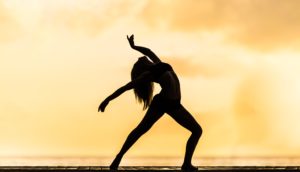
Photo by David Hofmann on Unsplash
Things fell apart. The center did not hold. Change, in other words. Life. Which is to say Death.
So, an unexpected ending to this post. Things are falling apart. I’m ready to stop trying to hold them together. It’s time to let go. Mom already has. Now it’s my turn. What lives in our center changes as we change. It’s time now for me to choose my center, choose it freely without guilt or shame.
Sometimes things fall apart and the center cannot hold.
So we find a new one.
Questions:
- What’s in your center?
- If you were free to choose your center, what would you chose?
- How many things compete for your center? Could you reduce the gravitational pull of your center?
- If your life changed in some dramatic way and you were forced to find a new center, how would you go about doing that?
- Is your center all about others, or do you have something there for yourself, too?
Leave a comment below! To read my fiction, serially published free every week, go here: 